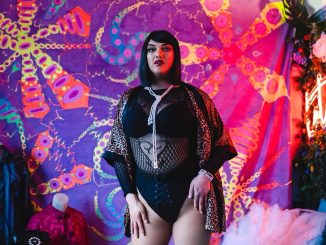In this week’s news feature (“A home for drag”), Ashiah Bird shines a light on Chico’s vibrant drag scene. The performers interviewed share how this inclusive, supportive community offers a safe forum for self-expression and identity exploration. They also share their concerns over the efforts of 15 of this country’s Republican-controlled state legislatures to try and outlaw some drag performances. So far, Tennessee is the only state to pass such legislation via a bill that includes “male or female impersonators” in a list of what it describes as “adult-oriented performances that are harmful to minors,” banning drag artists from public performances where minors are present. Much of the inflammatory rhetoric in support of these laws takes aim at the popular drag queen story hours that largely take place in public libraries, characterizing them as attempts to sexualize children or groom them for an alternative lifestyle. As Bird’s interviewees point out, just as any artist performing in a public place, those doing drag cater their act to the audience. The kids are getting kid stories, not a bar act.
Thankfully, the Tennessee law has already been blocked by a federal judge. However, civil rights advocates and drag performers point out that these efforts have already inspired violence as hate groups such as the Proud Boys have showed up at drag story hour events around the country and incited physical confrontations.
Out here in liberal California, we might be under the impression that the free expression of drag performers won’t soon lose its legal protections, but that doesn’t mean hateful groups won’t be inspired by the political rhetoric to act on their own. All we have to do is look at our District 1 U.S. Congressman Doug LaMalfa to take a cautionary pause. In a Tweet last October, LaMalfa wrote: “Our children’s classrooms are for reading, writing, and math. Not ‘Drag Show Storytime’.”
Instead of putting on a political show and pandering to his base, LaMalfa could endeavor to serve the well-being of all of his constituents. The drag community is the example of decency here, promoting the very freedom and liberty that these anti-drag laws would quash.
We suggest LaMalfa and those sponsoring these laws take a cue from the American Library Association, which stands by the branches that host drag performers for story hours in the name of “creating a more equitable, diverse, and inclusive society. This includes a commitment to combating marginalization and underrepresentation within the communities served by libraries through increased understanding of the effects of historical exclusion.”


Be the first to comment